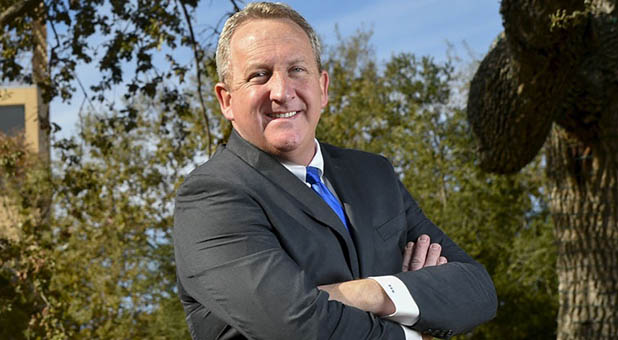New Shocking Poll Released on Evangelical Pastors’ Involvement in Politics
Our religious liberty and foundational freedoms are at stake, biblical marriage is under constant attack, the LGBT agenda is advancing at a worrying pace and evangelical pastors are backing away from politics?
That was the findings of a new survey conducted by the Barna Group on behalf of the American Culture & Faith Institute. Barna called the results “nothing short of astounding,” and he didn’t hold back in his critical analysis of the findings.
“In an election year where nothing has been normal so far, the apparent choices of conservative pastors may be the most abnormal thing of all,” he said. “This is clearly a time when Christian and conservative voters need their spiritual leaders to help them make sense of what is happening and how to respond biblically to the chaos and uncertainty.
“The fact that tens of thousands of conservative pastors—even more than during the mid-term election cycle—are planning to ignore this crucial election and have followers of Christ play little-to-no role in the electoral process is shocking. The message that conservative pastors are sending to congregants is their Christian faith should have no influence on this election and therefore they should be passive bystanders while people with opposing worldviews and values make critical governance choices for Christians.
“With all due respect, that is both a mind-boggling lack of leadership and a startlingly bold example of poor citizenship.”
First, the not-so-surprising findings:
- By a two-to-one margin (44-22 percent), the conservative pastors interviewed felt that Republican nominee-in-waiting Donald Trump is likely to defeat his likely Democratic counterpart, Hillary Clinton.
- However, more than one-third (35 percent) said they did not know who is most likely to win.
- As for their personal preference, they preferred Trump over Clinton by a 6-to-1 ratio (60 to 10 percent), while the remainder preferred someone else (13 percent), refused to vote (6 percent), or were still undecided (11 percent).
These perceptions of the current state of the 2016 presidential election were the basis for responses to questions about how these pastors were specifically taking action to prepare their congregations for November. This would be the shocking part of the findings.
Each pastor was asked about eight specific courses of action they may have taken during the 2014 mid-term election, and could take during the 2016 cycle. They indicated “limited” activity in 2014, and even less of each activity in 2016:
- Sponsor a voter registration drive at your church—21% in 2014, 12% in 2016
- Actively encourage get-out-the-vote efforts—9% in 2014, 7% in 2016
- Invite candidates to speak at your church prior to the election—5% in 2014, 3% in 2016
- Preach at least one sermon about a public policy issue—37% in 2014, 21% in 2016
- Offer printed or online voter guides to your congregation—45% in 2014, 36% in 2016
- Include election-related information on your church website—5% in 2014, 4% in 2016
- Encourage members of your church to get actively involved in a campaign—29% in 2014, 20% in 2016
- Speak to your church about the importance of voting—78% in 2014, 62% in 2016
Barna, asked about why there is such a lack of engagement by conservative evangelical pastors in 2016, was equally frank. Pointing to the Rev. Franklin Graham’s comments made prior to an event in New York earlier this year at which Trump later spoke, he said many pastors do not want to be judged for supporting a candidate who is morally imperfect.
“But the truth is that none of us—these pastors included—are morally perfect, which is why we need Jesus to save us,” he said. “Both of the major party candidates this year are flawed, but all candidates have always been morally flawed—they’re human! In the meantime, we need to work together to elect leaders who will allow the church to follow Christ with as much freedom and as little government interference as possible.
“Pastors should not ask congregants to place their full and eternal trust in a political candidate, but rather to choose the best person for the job since someone is going to be elected whether we participate in the process or not. How can conservative pastors justify sitting out the election when so much is at stake for the church itself? And please notice that theologically liberal churches are much more engaged in the electoral process.”
Barna also stated the 2016 election is, in many ways, the easiest for churches to engage in going back more than a generation. He said the policy differences between Trump and Clinton—particularly on social, moral, and religious issues—are “more distinct this year than at any time since the Reagan-Carter election in 1980.”
“The fact that conservative pastors choose to not get involved, while also refusing to preach about the biblical foundations for thinking about the major issues, suggests that perhaps our church leaders do not know what they and the Bible believe on these matters,” he said. “Why else would they not exploit the opportunity to use the election as a reason to engage, instruct, and challenge God’s people on His truth?”














































